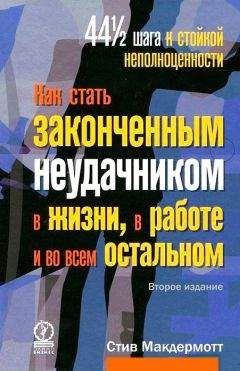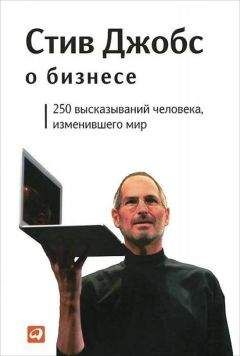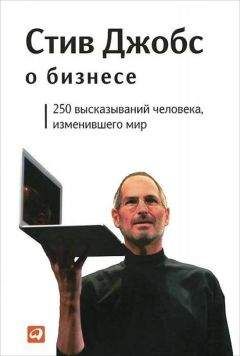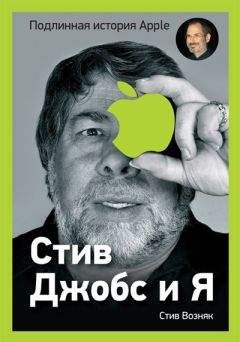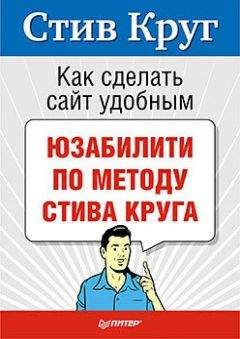Михаил Сарапов - Английский для смелых. Истории о духах и привидениях / Great Ghost Stories
At that moment my attention was drawn to a light that suddenly streamed from an upper window of the house (в это мгновение мое внимание было отвлечено светом, что внезапно зажегся в окне верхнего этажа дома; to draw – тащить; тянуть, привлекать, притягивать; to stream – литься, струиться; stream – поток): one of the servants, awakened by what mysterious premonition of evil who can say (кто-то из прислуги, разбуженная кто знает: «кто может сказать» каким загадочным предчувствием зла), and in obedience to an impulse that she was never able to name, had lit a lamp (и повинуясь порыву, который она так и не смогла объяснить, зажгла лампу; to name – называть, назначать, указывать; name – имя). When I turned to look for my father he was gone (когда я обернулся посмотреть на моего отца, тот исчез; to look for – искать, разыскивать), and in all the years that have passed no whisper of his fate has come across the borderland of conjecture from the realm of the unknown (и за все прошедшие годы ни слуха о его судьбе не проникло через границу предположения из царства неведомого; to pass – идти, проходить; whisper – шепот; молва, слух).
He had released my arm and was standing rigid and motionless in the center of the illuminated roadway, staring like one bereft of sense. His face in the moonlight showed a pallor and fixity inexpressibly distressing. I pulled gently at his sleeve, but he had forgotten my existence. Presently he began to retire backward, step by step, never for an instant removing his eyes from what he saw, or thought he saw. I turned half round to follow, but stood irresolute. I do not recall any feeling of fear, unless a sudden chill was its physical manifestation. It seemed as if an icy wind had touched my face and enfolded my body from head to foot; I could feel the stir of it in my hair.
At that moment my attention was drawn to a light that suddenly streamed from an upper window of the house: one of the servants, awakened by what mysterious premonition of evil who can say, and in obedience to an impulse that she was never able to name, had lit a lamp. When I turned to look for my father he was gone, and in all the years that have passed no whisper of his fate has come across the borderland of conjecture from the realm of the unknown.
II. Statement of Caspar Grattan
(Cвидетельство Каспара Грэттена)
Today I am said to live (сегодня, говорят, я живу); tomorrow, here in this room, will lie a senseless shape of clay that all too long was I (завтра здесь, в этой комнате, будет лежать бесчувственный комок глины, который слишком долго был мной; shape – форма; видимость; clay – глина; земной прах /из которого Бог сотворил человека/; человеческая плоть; тело). If anyone lift the cloth from the face of that unpleasant thing (если кто-нибудь приподнимет ткань с лица этого малопривлекательного нечто; unpleasant – неприятный, отталкивающий; thing – вещь, предмет) it will be in gratification of a mere morbid curiosity (то лишь для удовлетворения болезненного любопытства; gratification – удовлетворение). Some, doubtless, will go further and inquire (некоторые, безусловно, пойдут дальше и спросят), “Who was he (кем он был)?” In this writing I supply the only answer that I am able to make – Caspar Grattan (в этих моих записках я даю тот единственный ответ, что я способен дать, – Каспар Грэттен; to supply – снабжать; to make – делать; создавать, порождать). Surely, that should be enough (конечно же, этого должно быть достаточно). The name has served my small need for more than twenty years of a life of unknown length (это имя служило моим скромным: «маленьким» потребностям на протяжении более чем двадцати лет жизни неизвестной продолжительности). True, I gave it to myself (это правда, я сам себе его дал), but lacking another I had the right (но, за неимением другого, я имел на это право; to lack – испытывать недостаток, нуждаться; не иметь). In this world one must have a name (в этом мире необходимо иметь имя); it prevents confusion, even when it does not establish identity (оно предотвращает путаницу, даже если не способно установить личность владельца; identity – идентичность, тождество; личность). Some, though, are known by numbers, which also seem inadequate distinctions (хотя некоторые известны под номерами, что также кажется неудовлетворительным отличительным знаком; inadequate – неадекватный; не отвечающий требованиям; недостаточный; distinction – различение; отличие, отличительный признак).
One day, for illustration, I was passing along a street of a city, far from here, when I met two men in uniform (однажды, например, я проходил по улице города, далеко отсюда, и встретил двоих в форме; illustration – иллюстрация, поясняющий пример; иллюстрирующий факт), one of whom, half pausing and looking curiously into my face, said to his companion (один из которых, приостановившись и с любопытством заглянув мне в лицо, сказал своему спутнику; half – наполовину; неполностью, почти; to pause – делать паузу, медлить), “That man looks like 767 (этот мужчина выглядит как 767-й).” Something in the number seemed familiar and horrible (что-то в этом номере показалось знакомым и ужасным). Moved by an uncontrollable impulse (повинуясь непреодолимому порыву), I sprang into a side street and ran until I fell exhausted in a country lane (я кинулся в переулок: «боковую улицу» и бежал, пока не упал в изнеможении на тропинке за городом; to spring – прыгать; бросаться; to run; lane – узкая дорога, тропинка; переулок).
Today I am said to live; tomorrow, here in this room, will lie a senseless shape of clay that all too long was I. If anyone lift the cloth from the face of that unpleasant thing it will be in gratification of a mere morbid curiosity. Some, doubtless, will go further and inquire, “Who was he?” In this writing I supply the only answer that I am able to make – Caspar Grattan. Surely, that should be enough. The name has served my small need for more than twenty years of a life of unknown length. True, I gave it to myself, but lacking another I had the right. In this world one must have a name; it prevents confusion, even when it does not establish identity. Some, though, are known by numbers, which also seem inadequate distinctions.
One day, for illustration, I was passing along a street of a city, far from here, when I met two men in uniform, one of whom, half pausing and looking curiously into my face, said to his companion, “That man looks like 767.” Something in the number seemed familiar and horrible. Moved by an uncontrollable impulse, I sprang into a side street and ran until I fell exhausted in a country lane.
I have never forgotten that number (я так никогда и не забыл этот номер), and always it comes to memory attended by gibbering obscenity (и всегда он вспоминается: «приходит в память» в сопровождении бессмысленной ругани; to gibber – говорить быстро, невнятно, бессвязно; obscenity – непристойность; похабщина; непристойная брань, сквернословие), peals of joyless laughter (взрывов хохота, в котором нет радости: «безрадостного смеха»), the clang of iron doors (лязга железных дверей). So I say a name, even if self-bestowed, is better than a number (поэтому я говорю, что имя, даже если выбираешь его сам, лучше, чем номер; to bestow – давать, даровать, жаловать). In the register of the potter’s field I shall soon have both (скоро в кладбищенской книге я обрету и то, и другое; register – журнал /записей, регистрации/; учетная книга; potter – гончар; горшечник; field – поле; potter’s field – кладбище для бедняков и бродяг[14]). What wealth (какое богатство)!
Of him who shall find this paper I must beg a little consideration (того, кто найдет эти записки, я взываю учесть кое-что; paper – бумага; лист бумаги, письменная работа; to beg – просить, умолять; consideration – размышление; обсуждение; соображение, учет обстоятельств; to consider – рассматривать, обсуждать; принимать во внимание, учитывать). It is not the history of my life (это не история моей жизни); the knowledge to write that is denied me (мне отказано в знании записать ее; to deny – отрицать; отказывать). This is only a record of broken and apparently unrelated memories (это всего лишь запись отрывочных и не связанных явно между собой воспоминаний; to break – ломать; нарушать порядок; apparently), some of them as distinct and sequent as brilliant beads upon a thread (некоторые из которых настолько же четки и последовательны, как блестящие бусины /нанизанные/ на нитку; distinct – отдельный; отчетливый; определенный; thread – нитка, нить), others remote and strange (другие – туманные и причудливые; remote – далекий, не связанный непосредственно; слабый; нечеткий, расплывчатый), having the character of crimson dreams with interspaces blank and black (темно-красные сны/кровавые: «имеющие характер темно-красных/ кровавых снов» с пустыми черными провалами; crimson – малиновый, темно-красный, кармазинный; кровавый) – witch-fires glowing still and red in a great desolation (ведьмин огонь, беззвучно полыхающий багрянцем в пустоши; still – бесшумный, тихий; неподвижный; to glow – светиться, сверкать, озарять; рдеть, пылать; great – большой, огромный; desolation – одиночество; уединение; разоренность; заброшенность).
Standing upon the shore of eternity (стоя на берегу вечности), I turn for a last look landward over the course by which I came (я оглядываюсь, чтобы /бросить/ последний взгляд на тот путь, которым я сюда пришел; landward – обращенный к берегу; course – курс, направление). There are twenty years of footprints fairly distinct (довольно различимы следы /длиною/ в двадцать лет), the impressions of bleeding feet (оттиски кровоточащих ног). They lead through poverty and pain (они ведут через бедность и страдание; pain – боль; горе, страдание), devious and unsure (блуждающие и неуверенные; devious – удаленный, отдаленный; блуждающий), as of one staggering beneath a burden (словно следы человека, склонившегося под непосильной ношей; to stagger – шататься, покачиваться; идти шатаясь; burden – груз; тяжесть, бремя) —
I have never forgotten that number, and always it comes to memory attended by gibbering obscenity, peals of joyless laughter, the clang of iron doors. So I say a name, even if self-bestowed, is better than a number. In the register of the potter’s field I shall soon have both. What wealth!
